"I am a Father to Two Autistic Children, and It's a Great Privilege"
When Yoav Melihi learned that his eldest daughter had autism, he never imagined that just a few years later his younger son would receive the same diagnosis. Now, he sees it as his mission to share from a personal perspective what it's like to be "a father on the spectrum."
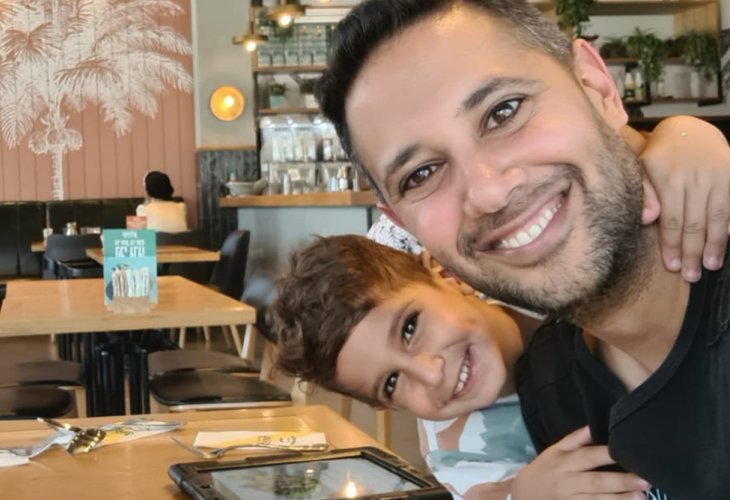 Yoav Melihi with his son Elroi
Yoav Melihi with his son ElroiWhat goes through a father's mind when he discovers his eldest daughter is diagnosed on the autism spectrum? And what happens when he learns that his four-year-old son is also on the spectrum?
"I am Yoav Melihi, a father to two wonderful children on the autism spectrum," Yoav introduces himself, and immediately wants to highlight: "I am not an emotional therapist, speech therapist, advisor, psychologist, neurologist, or psychiatrist. I didn't come to give professional information here, but to tell my personal story, with the aim of raising awareness of the great privilege of being a dad to this wonderful thing called autism."
A Confusing Diagnosis
Yoav and his wife got married about eleven years ago, and just a year later, their first daughter, Noga, was born. "We were a young couple, and we had no indication of how development was supposed to look compared to other children," Yoav recalls, "We heard everywhere that in the early period there are many sleepless nights, but with Noga, these were not sleepless nights; she didn't sleep at all. There were many screams and pains, and it was clear she was uncomfortable, but we didn't understand something was really unusual. We took her to doctors repeatedly, some said it was reflux, some said it would pass, and that it was her nature. Ultimately, the maternity leave, which wasn't really a leave, ended, and she went into daycare."
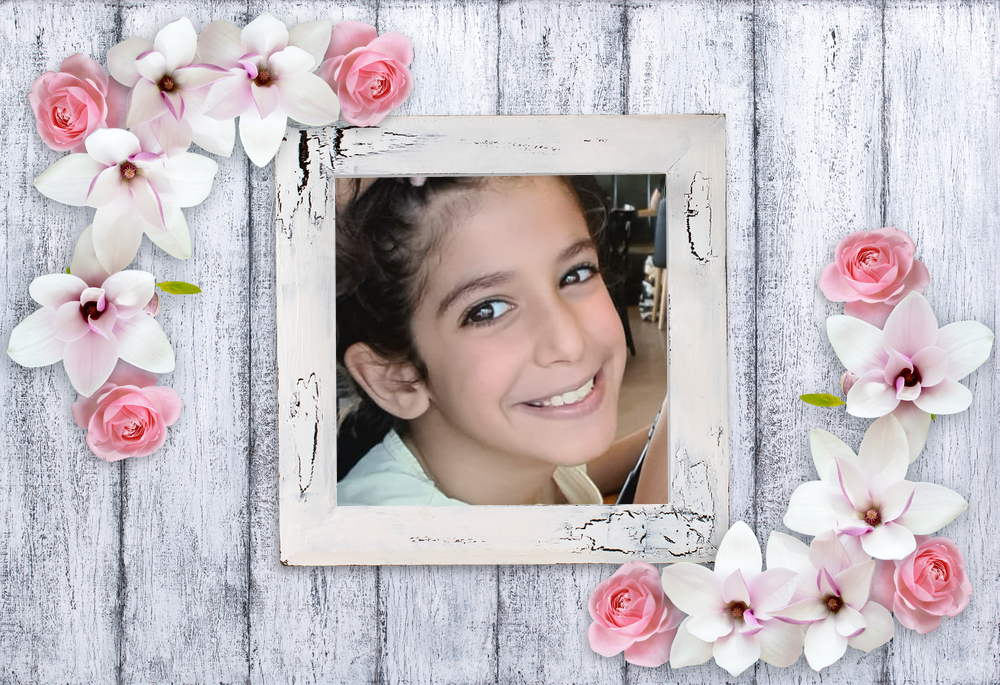 Their eldest daughter Noga
Their eldest daughter Noga"When Noga was at daycare, we didn't know or experience differences compared to her peers except for relative developmental delay," he adds. "Only towards the end did the daycare manager ask us, 'Don't you notice she doesn't progress like everyone else? Don't you notice she isolates herself?' We answered no. Although we saw that other children surpassed her in almost every area, we felt that eventually everyone learns to do everything, so why panic? As for social issues, we never imagined it could happen at such a young age."
"But after the conversation with the manager, we started noticing additional signs that were not normative. Besides the developmental delay, Noga would pull her hair very strongly until she would pull it out. She also used to, and still does, put objects in her mouth beyond what is normal among children. As she grew, she was exposed to more items which increased the risk to herself. On the other hand, she was very verbal, though she didn't speak, she babbled a lot, and people around us always said: 'When she grows up, she will be a singer.' All these elements together caused us great confusion."
"Later, we took her for a diagnosis, where she managed to confuse the staff who examined her. Everyone agreed she had a problem, but they debated whether it was an issue of communication problems causing attention deficits, or if the attention deficits led to communication problems."
And why does it matter?
"It matters mainly to know if she's diagnosed on the autism spectrum. Initially, the conclusion was that it wasn't a case of autism but sensory processing issues and attention deficit disorder. So we looked for a framework suitable for her, with fewer children and more attention and treatments. We found a language-focused kindergarten and sent her there. In that kindergarten, she studied for two years, but during the second year, the staff began signaling that there was a difficulty preventing her progress."
"Conversations with the kindergarten staff and our own observations led to the understanding that the initial diagnosis might not have been accurate, and we went for a new, more focused evaluation. It included, among other things, a test called 'ADOS,' where the child is placed in a room and given various tasks. The setting is supposedly normal, while the room is fully equipped with cameras that later analyze the child's behavior in terms of maintaining eye contact, compliance, sharing with others, etc., aiming to obtain the most accurate profile possible. This test, along with other evaluations Noga underwent, eventually led to the unequivocal news: Noga was diagnosed on the autism spectrum."
And as parents, how did you feel about it?
"Personally, it was very difficult, not because of the current situation, but mainly due to thoughts about the future. I couldn't help but wonder what awaits her, who she'll be with, how she'll manage and cope in school and life. These thoughts are very difficult for me to this day, more than six years after the diagnosis. They occasionally catch me and cause me a lot of pain. As time goes by, it's even harder because the gap between her and her peers widens."
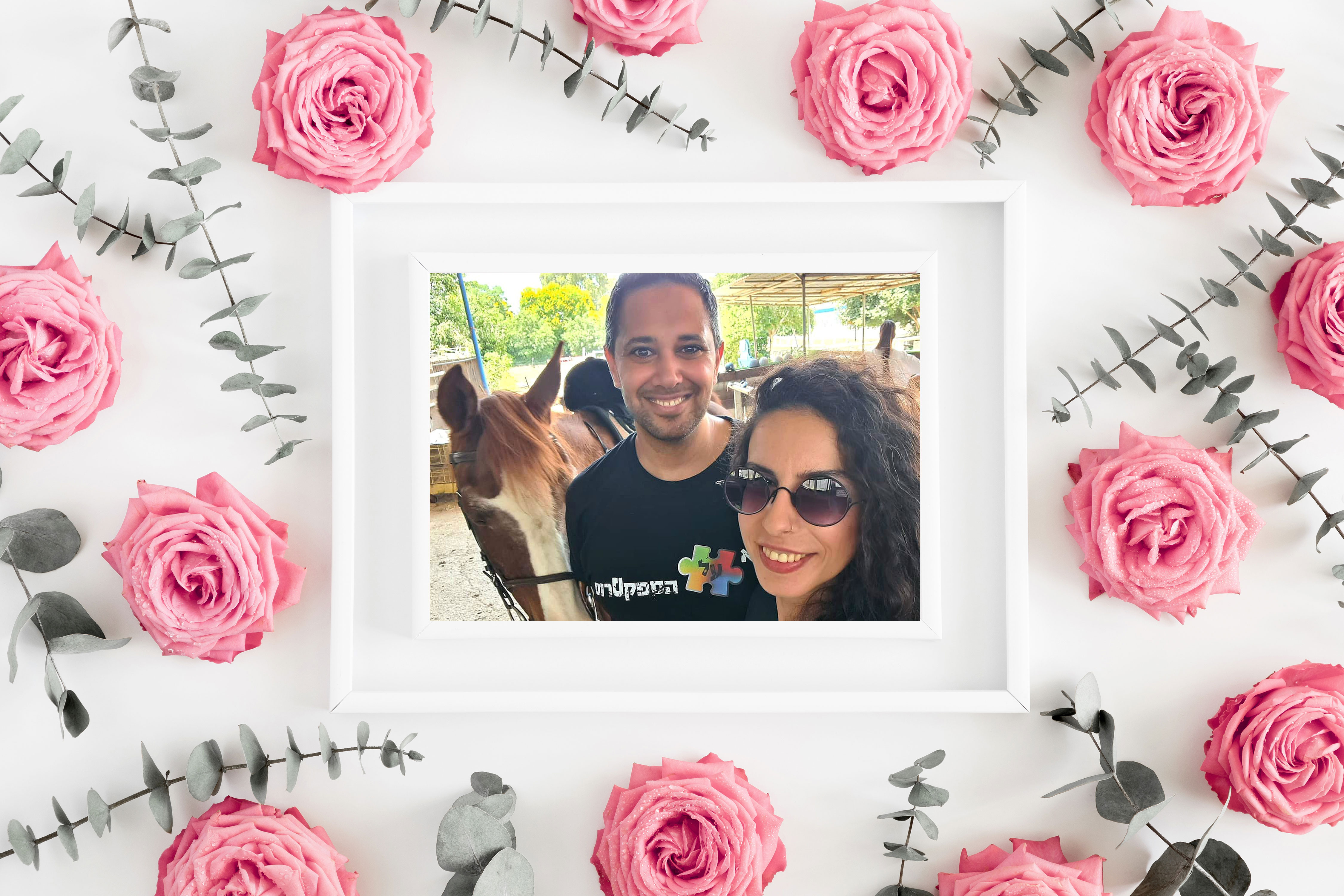 Yoav Melihi and his wife
Yoav Melihi and his wife"But I must say, Noga herself gives us a lot of strength because she is an amazing child full of joy. She tries very hard to communicate with the people around her, despite the difficulty, and teaches me a life lesson about motivation and determination each time. Her main challenge is understanding social situations. We might walk down the street, and if she thinks someone is looking at her, she believes they are laughing at her. Then she might get hurt and start crying and shouting. There was also a period when she'd run to strangers and hug them. We try to help her, mediate for her and teach her, but there's still a great difficulty in integrating into regular society."
Three-Year-Old Artist
When Noga was five, her younger brother Elroi was born. "Elroi’s development was completely different from Noga’s," his father says. "He reached developmental milestones rapidly, and we were amazed to see him doing everything much earlier than his peers. His daycare caretaker was constantly impressed with his abilities and his speech, which was at a very high level. At one point, she even started teaching him letters and words in English. He grasped everything quickly and was eager for knowledge; he had the patience to sit for long periods and invest in drawing or coloring. Already by the time Elroi was two, he loved to draw and put a lot of effort into it. While other kids his age scribbled on pages and rushed to the yard, he drew pictures and colored them very accurately, without going outside the lines."
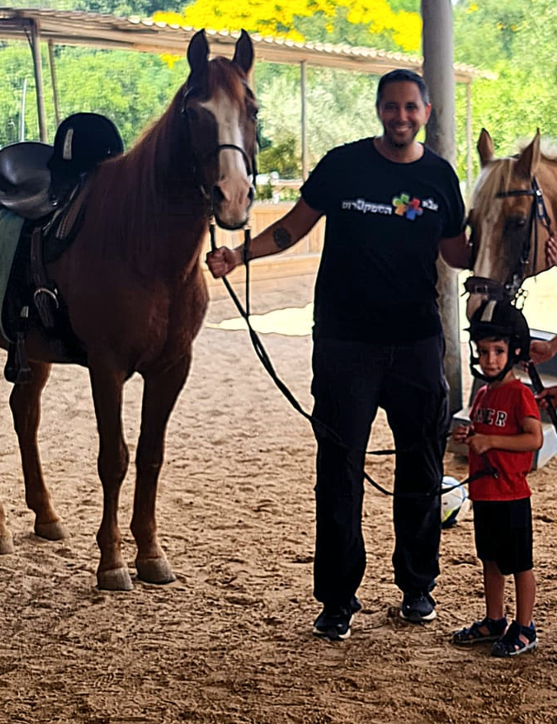
"Elroi was so focused on his interests and wasn't at all concerned with what was happening around him, including the kids playing in the yard. It seemed natural to us that they simply didn't interest him, so we enrolled him in a regular municipal kindergarten with 35 children. We were sure that in his case, a mundane routine awaited us."
Yoav notes that when Elroi came to kindergarten, they began to understand there was a real social issue. "Elroi didn’t approach the kindergarten kids at all and hardly went to them. The teachers reported that he tends to isolate himself and avoid joining tasks. More so, Elroi himself conveyed to us that he wasn't well and that the transition from a small, warm framework to a kindergarten with so many children was a tough experience for him. It reached a point where he was really resistant to going to kindergarten, and when we suggested he approach the children, he articulated his struggle so well, saying: 'I don't know how to approach them.'
"All these things added to other difficulties he had, different from Noga’s but nonetheless features of autism. Because autism, as we've come to learn, can manifest in a wide range of forms and at various levels."
Yoav and his wife decided to "move mountains" and diagnose Elroi as quickly as possible so they could transfer him to a suitable framework. "We went for a private assessment, which cost a lot of money, and eventually the results came, stating that cognitively, Elroi is more advanced than his peers but is diagnosed with communication issues on the autism spectrum."
And this time, how did you take the news?
"Between the assessment and the results, we had some nerve-wracking days, during one of which a realization struck me, and I told my wife: 'The results of the diagnosis will not change our child, and in any case, he will continue to behave the same and remain the same Elroi, but if there is a diagnosis, we will have the tools to help him.'
"This understanding gave both of us a lot of strength. Indeed, we finally received the diagnosis in a joint Zoom call while I was at work, with the assessment team on the screen. After they delivered the news, they expected my reaction, but I remained silent. They thought I didn't understand and tried to explain again, but I briefly responded: 'We already anticipated this and were prepared for it, so there’s no real surprise here.'"
What gives strength in such situations?
"There are always good emissaries who help us. For instance, when Noga was born and we were young and very frustrated parents, mostly due to the screaming at nights, we were heaven-sent help. My older sister, who lived close to our home and heard the screams from her house, called in the middle of the night to say she was coming to help us. At that time, my sister was very advanced in cancer, yet this did not stop her from spreading her vast light and strengthening us. Unfortunately, she didn’t get to see Noga celebrate her second birthday or know how the future unfolded, yet she is a prime example of the good angels we have had along the way, both with Noga and Elroi."
Yoav takes a deep breath and wishes to emphasize: "There is no doubt that raising two children on the spectrum is not an easy project. Especially as they are so different from each other, requiring different thinking, approaches, and types of treatment. But I must emphasize that our home is very joyful, with a warm and family-like atmosphere. We have many fun and quality family hours, and our lives are good and beautiful. I believe the complex reality of our lives is what brought us together and cemented us, because precisely because communication is a weak point in our home, we are especially aware of the great importance of connection and bonding as a family."
Dad on the Spectrum
Yoav is now only a few months after Elroi's diagnosis, and alongside treatments, a demanding life routine, and working full-time, he also found the time to put his paternal experiences on paper and published a book called "Dad on the Spectrum."
Yoav notes that one of the special aspects of the book is that the illustrations that accompany it were drawn by a guard at his daughter Noga's school who, besides knowing the special kids, is also a very talented artist. The book's logo was created by the horse-riding therapist who treats his children.
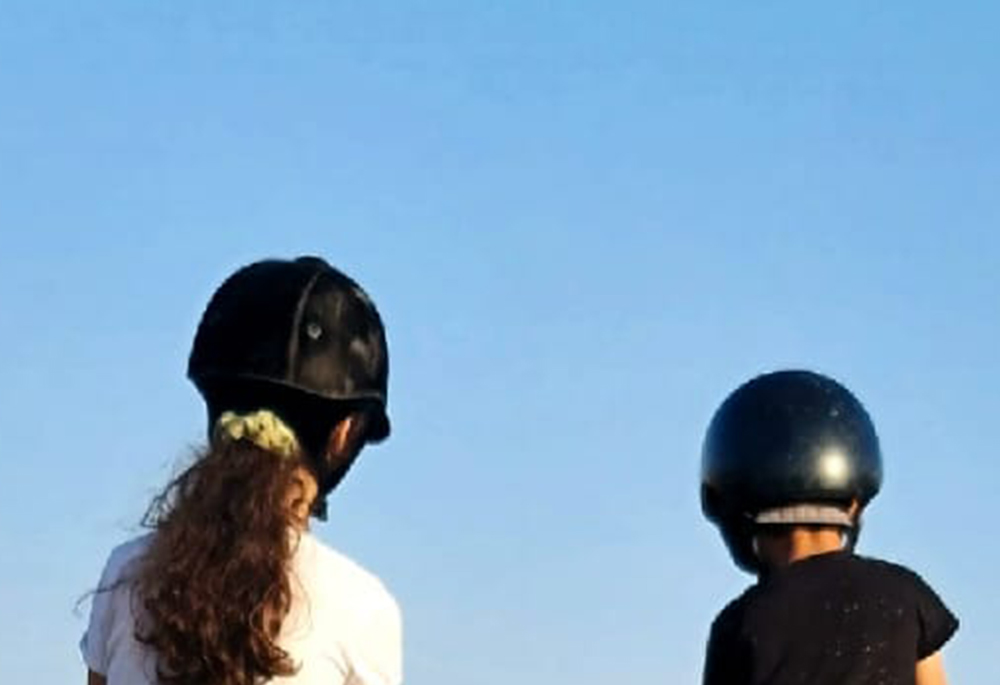
"Those who know me know how much I am not the type that likes to be exposed," he says, "I have been through many challenging things in my life, and usually shared them only with the people closest to me, and even them just barely. But it happened that I spoke recently with another father of a child diagnosed on the spectrum and heard from him experiences so similar to mine. I felt the need to come out with this special book aimed specifically at fathers of such children, to create identification and share those feelings. Additionally, I am also targeting this book at those not connected to the subject, who nonetheless want to raise awareness and recognize the symptoms and difficulties that characterize the upbringing of children with autism. I believe that being a father to two wonderful children like this is a great privilege, and I am happy to share this with others."

